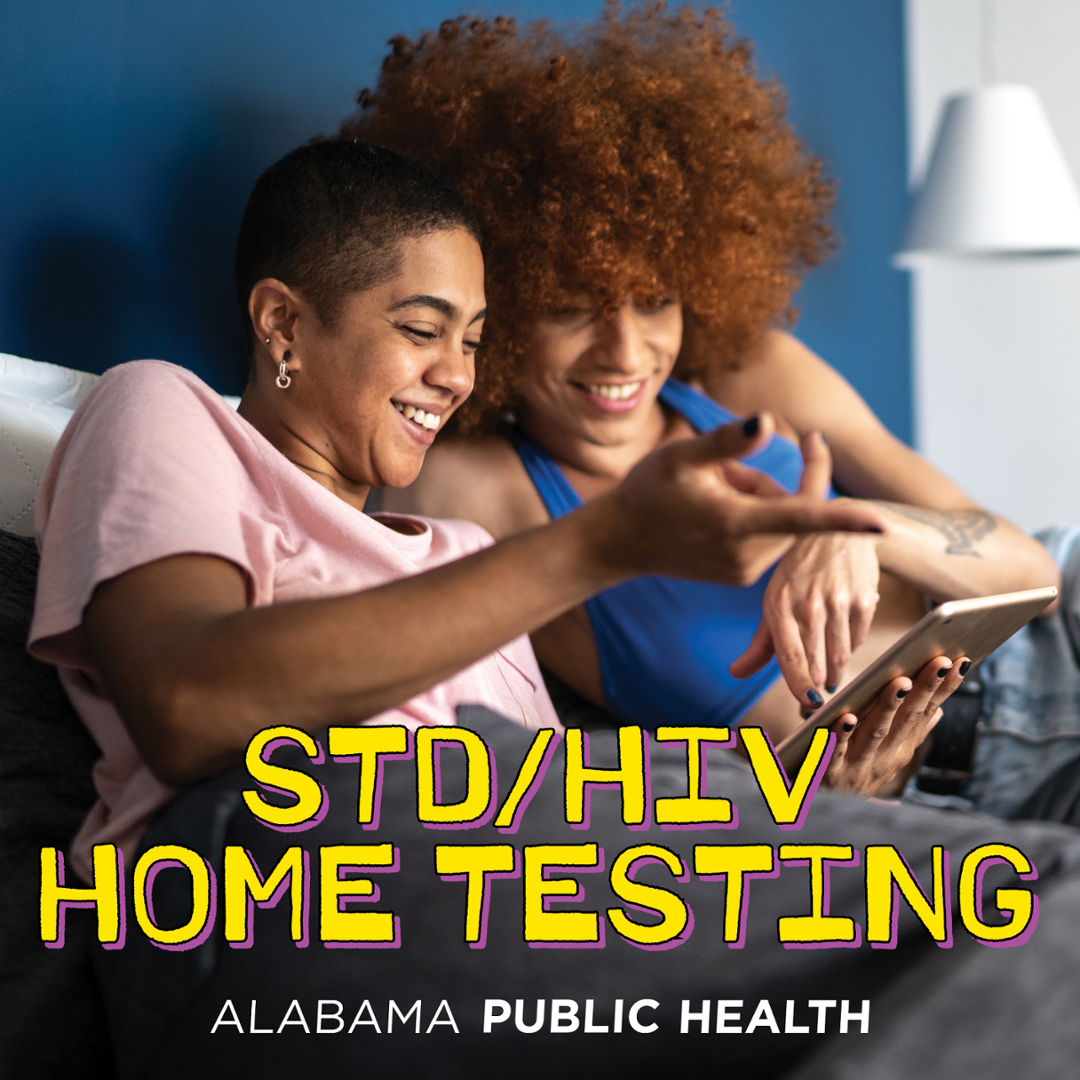In April 2021, the Alabama Department of Public Health (ADPH), Division of Sexually Transmitted Diseases (STD), implemented a novel self-collected STD/HIV at-home specimen collection initiative facilitated by BINX Health to help address stigma, geographic, and privacy challenges faced by high-risk communities in Alabama. These sexually transmitted disease (STD) collection kits include tests for chlamydia, gonorrhea, syphilis, and HIV. The free STD/HIV home specimen collection kits are available by mail for all Alabama residents and to selected individuals who are on PrEP therapy. The Division of STD utilized targeted marketing strategies to reach high-risk communities, universities, and rural settings, and promoted the program with online advertising, news releases, TV segments, and posters in facilities across the state. Individuals placed orders on a unique BINX Health HIPAA-compliant website, where they received an at-home STD/HIV sample collection kit with testing recommendations based on state requirements. Individuals are allowed to choose between a single or triple-site sample collection kit that is specific to their personal sexual practices (anal, vaginal, urine and oral). The kits are delivered to the home or location of choice where samples were self-collected and returned to the laboratory for processing. Diagnostic test results are made available through the consumer’s personal BINX Health portal within a few days of sample receipt by the laboratory. If test results are positive, a licensed healthcare provider notified the individual and discussed a treatment plan and referrals. An ADPH Disease Intervention Specialist from the local county health department follows up on all positive individuals to ensure adequate treatment has been received and no additional testing is required.
The Division of STD utilized targeted marketing strategies to reach high-risk communities, universities, and rural settings, and promoted the program with online advertising, news releases, TV segments, and posters in facilities across the state. Individuals placed orders on a unique BINX Health HIPAA-compliant website, where they received an at-home STD/HIV sample collection kit with testing recommendations based on state requirements. Individuals are allowed to choose between a single or triple-site sample collection kit that is specific to their personal sexual practices (anal, vaginal, urine and oral). The kits are delivered to the home or location of choice where samples were self-collected and returned to the laboratory for processing. Diagnostic test results are made available through the consumer’s personal BINX Health portal within a few days of sample receipt by the laboratory. If test results are positive, a licensed healthcare provider notified the individual and discussed a treatment plan and referrals. An ADPH Disease Intervention Specialist from the local county health department follows up on all positive individuals to ensure adequate treatment has been received and no additional testing is required.
In the first 12 months of the program, 3,588 orders were placed online. Forty-five percent of the kits were returned to the lab during this period. Of the kits returned, 92.5 percent were received within the first 30 days. Approximately 51 percent of individuals opted for the triple-site (genital, rectal, oral) test, whereas 41 percent wanted the single-site (genital-only) test. For those looking to initiate or maintain a PrEP regimen, the Division of STD offered individuals coupons for triple-site at-home sample collection kits including follow-up testing. Follow-up testing at clinically relevant intervals is recommended to assess continued HIV-negative status, kidney function (creatinine), pregnancy for individuals who may become pregnant, and infection with syphilis, chlamydia, gonorrhea and hepatitis C. To date, 3 percent of test kits were utilized by PrEP clients.
The Division STD experienced a 3.8 percent chlamydia positivity rate and a 2.5 percent gonorrhea positivity rate from the BINX Health testing. Furthermore, the initiative identified 16 newly diagnosed syphilis and 3 newly diagnosed HIV cases. All were referred for treatment and specialized care management. Primary reasons why surveyed individuals chose at-home sample collection were privacy, affordability, and not being comfortable talking with their healthcare providers about sexual preferences.
At-home sample collection kits for STDs and laboratorybased testing demonstrated the ability to bridge geographical barriers to rural and hard-to-reach communities in Alabama. Carefully designed STD testing programs, in partnership with ADPH county health department, helped ensure that individuals were being tested for the right infections according to medical guidelines, positive results were followed up by a clinician, and appropriate treatment was prescribed. Through the program, 100 percent of all counties in Alabama were reached during this period. Due to the convenience of at-home sample collection, individuals can potentially shorten illness times, prevent transmission, and improve sexual health.